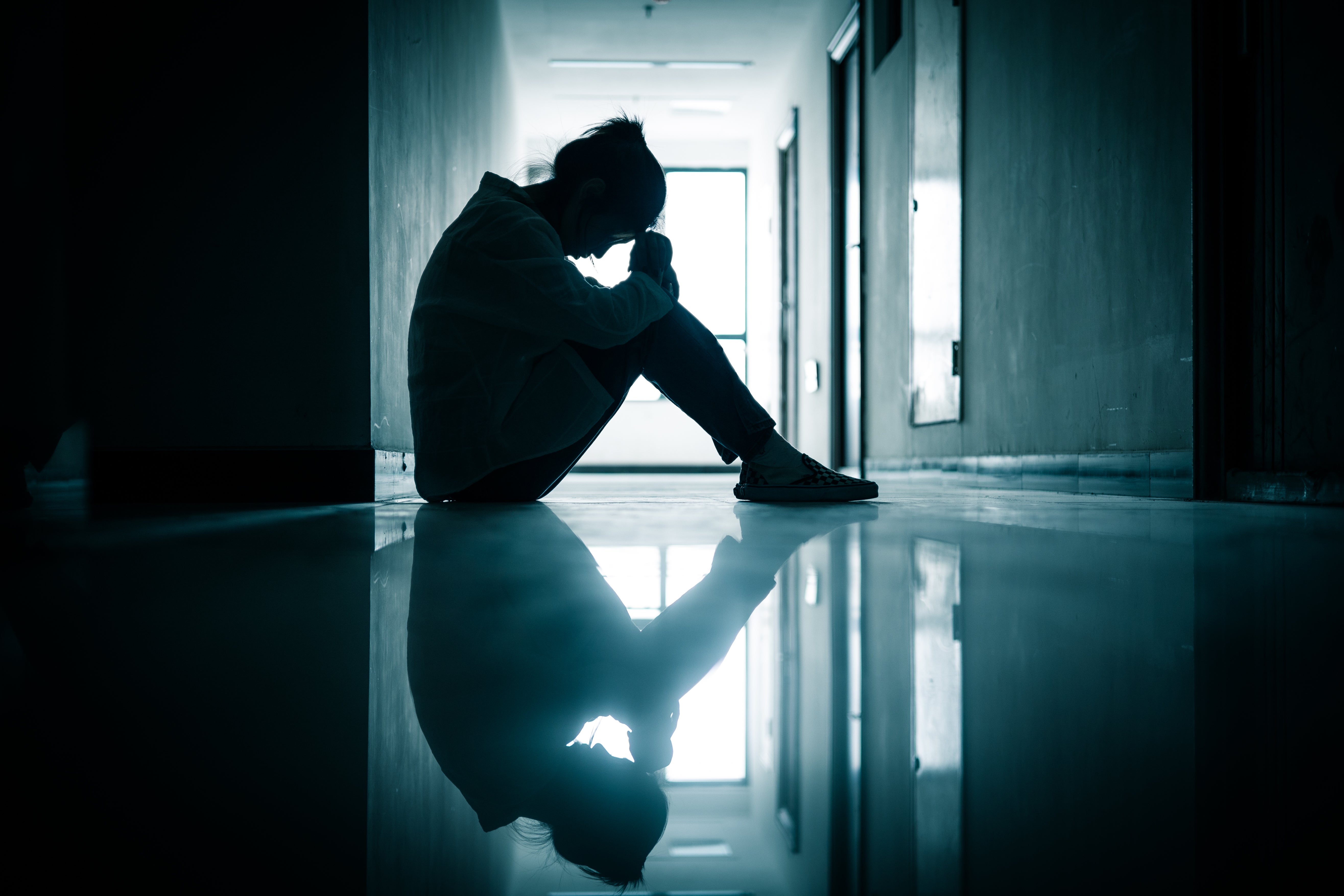The Independent's journalism is supported by our readers. When you purchase through links on our site, we may earn commission.
I grew up with severe social anxiety – here’s how I dealt with it
Hiding from social situations to protect myself became normal. That’s what people do when they have been shamed, traumatised, or repeatedly told they are not good enough – they hide and become quiet


It started at the age of six in primary school. Elizabeth and Mary excluded me from activities and friendship groups. I wasn’t good enough.
What made it worse were the boys who repeatedly said, “go home”. But where did they want me to go? I was born in Coventry, but clearly wasn’t good enough to belong there either. Then the labelling started at the school parents’ evening: “She’s really bright but quiet.” “She needs to speak up in class.” How can you speak up when your heart is racing incredibly fast, your mind is blank, and your mouth is dry because you’re petrified of being humiliated and know people wish you didn’t exist?
Then there was the Asian community, which I adore, but also comes with immense pressure. Everyone is an uncle or aunt and you’re expected to speak to all enthusiastically. Sometimes, uncles and aunties would pinch my cheeks out of affection and make comments about my size which varied from too thin to chubby. Being judged and scrutinised was horrible. I’d freeze and not know what to say or how to respond so I’d hide behind the sofa anytime people visited our home to avoid them.
My confidence started to shrink as I started to believe there was something wrong with me. I made myself invisible by hiding from social situations. It’s not that I didn’t want to socialise or connect with people – quite the contrary, I’m a sociable person and love making friends – but it was safer to dodge the spotlight and avoid interacting. Sadly, I stopped the activities I loved the most such as making people laugh, going to events or parties, and playing sports. And my fear of social situations worsened as the belief “I’m not enough” became more ingrained in my psyche.
Hiding from social situations to protect myself became normal. That’s what people do when they have been shamed, traumatised, or repeatedly told they are not good enough – they hide and become quiet, which can lead to loneliness and full-blown social anxiety disorder.
Thankfully, several years later I was able to regain my confidence. I started attending meditation sessions with my dad, not for the anxiety (I didn’t know I had anxiety until I became a therapist), but out of curiosity. Unexpectedly, I soon learned that regulating my breathing during social interactions was a game-changer whenever I felt overwhelmed, or my stress response was triggered. It helped me to feel calmer and better able to respond during interactions.
Then at age 14, a major turning point happened at my sister’s Indian wedding, which was held over several days with hundreds of guests. I didn’t have a choice but to talk to people – there was nowhere to hide. Initially, I had a few positive interactions with people I hadn’t seen for so long. They saw the real me, saying, “I missed your fun” or “you’ve read a lot of books and have interesting things to say”, which started to reignite my spark and remind me of my worth.
Despite a couple of negative comments such as “I didn’t realise there was a third sibling” – highlighting how invisible I was – I felt seen and heard. Over the week, I’d experienced enough positive interactions which started to prove my social fear of not being good enough wrong and regain some confidence. After the wedding, I felt more open to socialising and kept building on that confidence by gradually interacting more.
To keep up to speed with all the latest opinions and comment, sign up to our free weekly Voices Dispatches newsletter by clicking here
In hindsight, I dealt with my social fears by accident. There weren’t any books or information on social anxiety 30 years ago. Even now, it’s the third-largest mental health issue globally, yet rarely spoken about, and it can affect anyone regardless of age, gender, background, or occupation – including the most confident go-getters.
If you’re feeling anxious or have lost your confidence to socialise since the pandemic, you are not alone. The pandemic was a form of trauma on the fabric of society; for some, past traumas have been re-triggered, for others, anxiety has heightened or been brought on for the first time. Of course, there is a spectrum of how socially anxious you might feel from shyness, and social awkwardness to social anxiety disorder, but battling any social fears in silence is tough.
To move through social anxiety, you need to understand it and open up. Because social anxiety makes it difficult to trust people and overthink that you won’t be supported, talking to friends is even more important to disprove those thoughts to break the vicious cycle. Each of us needs to feel seen and heard, and we need connection for survival. So, the more positive interactions you collect, the more proof you will have against your fear-mongering beliefs to rewire your brain and live free of social fears.
‘How to Understand and Deal with Social Anxiety’ by Mita Mistry is out on 8 September
Bookmark popover
Removed from bookmarks